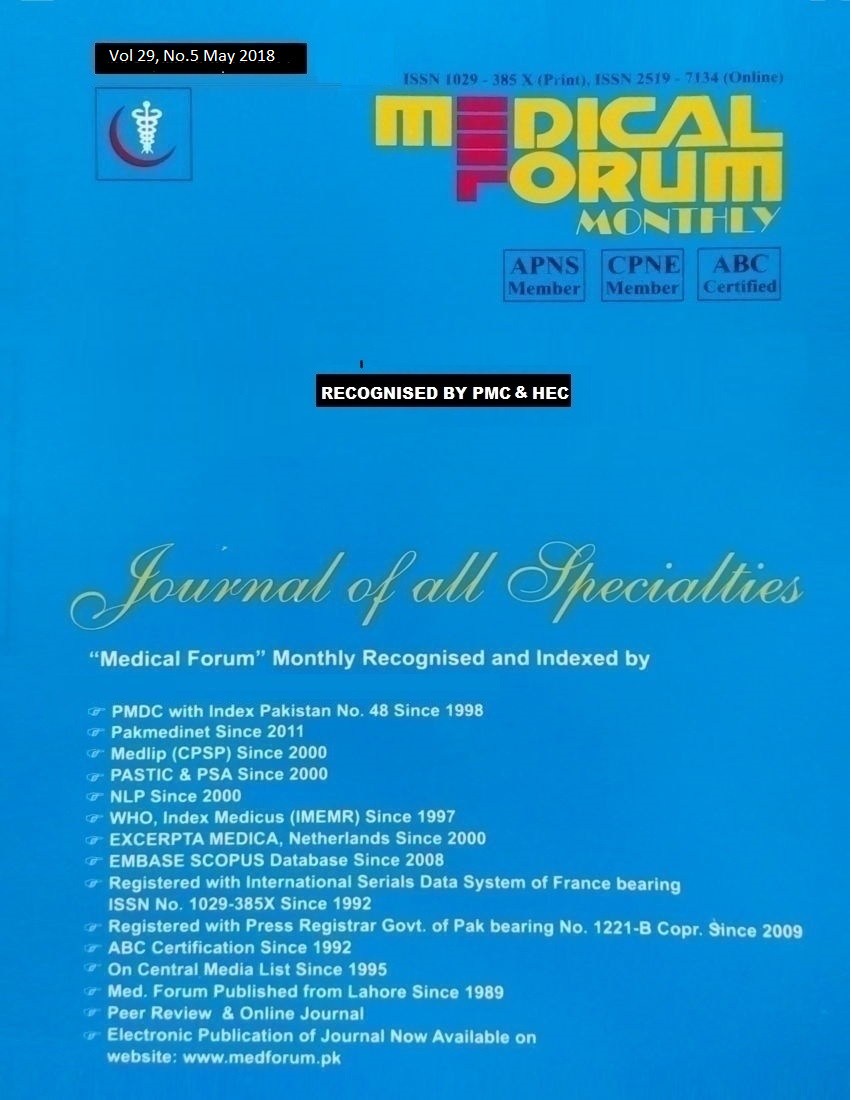
19. Unusual Incidental Histopathological Findings of Appendectomy Specimens
Inayatullah Memon and Attiya Memon
ABSTRACT
Objective: To determine the unexpected incidental histopathological findings ofsurgically removed appendectomy specimens.
Study Design: Observational study
Place and Duration of Study: This study was conducted at the Department of Pathology, Indus Medical College Tando Muhammad Khan from February 2017 to January 2018.
Materials and Methods: A sample of 200 appendectomy specimens was collected according to inclusion and exclusion criteria. Gross examination of specimens was noted. 5 µ tissue sections were stained with Hematoxylin and Eosin and examined under microscope. A structured proforma was designed for the collection of data. Data variables were typed on the Microsoft excel sheet in Windows 7.0 software. Data was analyzed onStatistix 8.1(USA) at 95% confidence interval (P ≤ 0.05).
Results: Mean Age was noted as 27±10.56 years. Male to female ratio was 5.6:1 (P=0.0001). Acute appendicitis was noted in 30.5%, suppurative appendicitis in 8%, gangrenous appendicitis in 5%, perforation in 9.5%, tuberculosis in 8.5%, lymphoid hyperplasia in 5.5% and fecolith in 7.5% of cases. Unusual histopathological findings noted were Crohn`s disease (1.5%), benign tumors (6%), carcinoid (1%), Adenocarcinoma (7%), endometriosis (3.5%) and Enterobiusvermicularis (6.5%).
Conclusion: Incidence of unexpected histopathological findings was high in appendectomy specimens.The present study emphasizes the importance of histopathological examination of every single resected appendectomy specimen to avoid missing any clinically important and treatable disease.
Key Words: Appendectomy,Tuberculosis, Enterobius, Histopathology
Citation of articles: Memon I, Memon A. Unusualincidental Histopathological Findings of Appendectomy
Specimens. Med Forum 2018;29(5):74-78.
